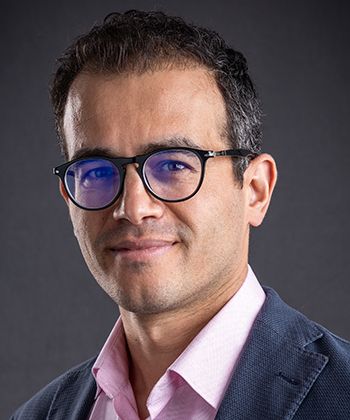Senior Faculty Leadership
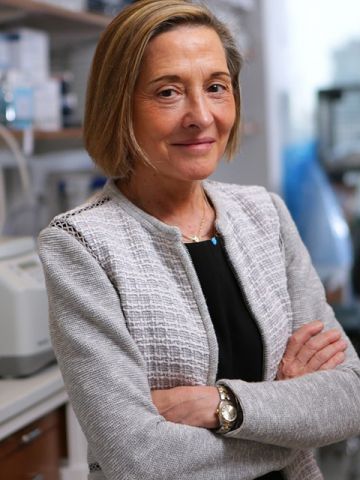
- Director of the Drukier Institute for Children's Health
- Ronay Menschel Professor of Pediatrics
I am a pediatric rheumatologist with long standing experience in Translational Research. My laboratory is focused on understanding the pathogenesis, finding biomarkers to guide therapeutic interventions and identifying therapeutic targets for human inflammatory and autoimmune diseases, including Systemic Lupus Erythematosus (SLE), various forms of Arthritis, Dermatomyositis, as well as immune responses to a broad variety of infections and vaccinations. I am Program Director of a NIAID-funded Autoimmunity Center of Excellence and a NIAMS-funded Center for Lupus Research. I have also directed the NIAID-funded Baylor Human Immunology Program Consortium Center focused on vaccine responses in health and disease. Pioneering genomic studies from my laboratory identified the role of dendritic cells and Interferon in SLE, and of cytokines such as IL1 in Systemic-onset Juvenile Arthritis, which has led to successful therapeutic interventions in this disease. More recently, we developed a personalized approach to identify molecular drivers of disease activity in pediatric SLE patients. This approach enabled us to stratify patients into seven major molecular subgroups, which might lead to improved design of clinical trials for this disease.

- Stavros S. Niarchos Professor in Pediatric Cardiology
- Professor of Pediatrics
Early work in the Lyden Lab resulted in several fundamental discoveries that involve the role of bone marrow-derived stem and progenitor cells in tumor vasculogenesis and in metastasis. Using pediatric and adult cancer models, Dr. Lyden and his colleagues made a pivotal discovery in the metastatic cascade revealing that tumor-secreted factors induce the formation of microenvironments in distant organs conducive to tumor cell survival and outgrowth. Remarkably, these microenvironments are generated prior to tumor cell arrival at these sites, an observation that led Dr. Lyden and his team to develop the concept of the "pre-metastatic niche". Work in the pre-metastatic niche has been translated to clinical care leading to advances in prediction, imaging and targeting of early metastatic disease progression. Dr. Lyden also found that tumor-secreted microvesicles, known as exosomes, initiate pre-metastatic niche via induction of vascular leakiness, stromal cell education and immunoregulation through key proteins (i.e., oncoproteins, integrins) and nucleic acids in exosomes. Tumor exosomes not only initiate pre-metastatic niche formation, but also determine organotropic metastasis, a hypothesis proposed by Stephen Paget more than 120 years ago. Dr. Lyden’s work has engendered a new appreciation for how primary tumor cells dictate future sites of metastasis by decoding how cancer-derived exosomes mediate intercellular communication. In addition, the Lyden team demonstrated the presence of double-stranded DNA in tumor exosomes. Thus, exosomal molecules may serve as valuable biomarkers for tumor detection and to follow metastatic progression.
Most recently, Dr. Lyden has identified specific exosome subpopulations (Exo-Large vesicles and Exo-Small vesicles) and discovered a new subset of particles known as exomeres, which have distinct functional roles in the systemic effects of cancer. Dr. Lyden’s group has a long-standing interest and collaborations to study the role of exosomes in pediatric cancers, such as medulloblastoma, osteosarcoma, neuroblastoma and leukemia. Last but not least, Dr. Lyden is collaborating with faculty in the Department of Pediatrics to elucidate the functional roles of exosomes and exomeres in other pediatric disorders, such as autism and systemic lupus erythematosus.
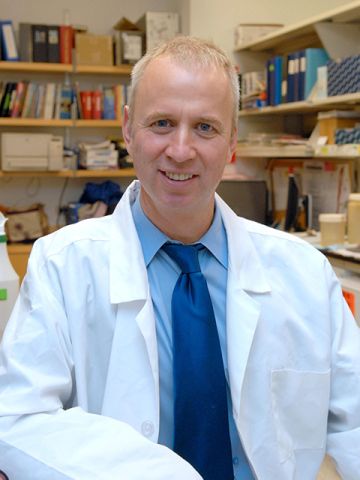
- Professor of Genetic Medicine and Pediatrics
- Distinguished Professor of Pediatric Pulmonology
Work in the Pediatric Pulmonary Research Laboratory is focused on how lungs of children with common chronic diseases respond to viral and bacterial infections. A main focus of the research efforts is on Pseudomonas aeruginosa in cystic fibrosis lung disease and common respiratory viral infections in asthma. Part of this work involves the development and assessment of novel genetic vaccines. A recent focus is on the role of sphingolipids in the development of childhood asthma and its responses to viral infections that most often trigger asthma flares in children. In addition, the laboratory is engaged in collaborative studies on mast cells and their products for lung disease of premature infants and the interaction of lung microbiota with infections in asthma and cystic fibrosis.

- Anne E. Dyson Professor of Pediatric Research
- Professor, Department of Pediatrics
I have a broad background in immunology, with specific training and expertise in B cell biology and antibody activity, relevant technologies, and translational applications based on B cell biology and antibodies. I also have expertise in influenza vaccinology and now COVID B cell and antibody responses. We apply various technologies and approaches to the study of autoimmunity, B cell biology, and responses to infectious diseases in humans and mice with a particular emphasis on influenza vaccinology over the past 12 years. The Wilson laboratory typically approaches scientific questions about B cells from the standpoint of “specificity-first” through characterizing B cell and monoclonal antibody specificities for the interpretation of immune responses or to evaluate B cell tolerance. Our recent work has involved extensive use of single cell transcriptomics combined with cell surface and antigen binding applications. We then follow up with a multitude of approaches and technologies to characterize the B cells and antibodies involved in the responses.
Faculty

- Associate Professor of Neuroscience in Pediatrics
Our mission is to understand the molecular mechanisms of neurodevelopmental and neurocognitive diseases such as autism and schizophrenia. Our projects focus on RNA molecules and how they control neuronal development. We also would like to understand the contribution of glial cells and interneurons to defects seen in neurocognitive diseases.

- Associate Professor of Biochemistry
LABORATORY OF DIABETES AND OBESITY SIGNALING: Terminal cell differentiation is crucial for developing, maintaining, and regenerating tissues in all multi-cellular organisms. The overarching focus of the Teruel Lab is to understand how to control terminal differentiation in order to maintain a dynamic balance between progenitor and differentiated cells that ensures healthy tissue development and prevents disease. To tackle this problem, my lab developed a platform to understand adipogenesis (fat cell differentiation) and other differentiation processes based on live and fixed-cell microscopy and analysis tools to simultaneously monitor and perturb signaling, cell cycle, and differentiation processes in thousands of single cells. To validate the relevance of our discoveries, we combine in vitro cell culture, organoid, and in vivo mouse models.
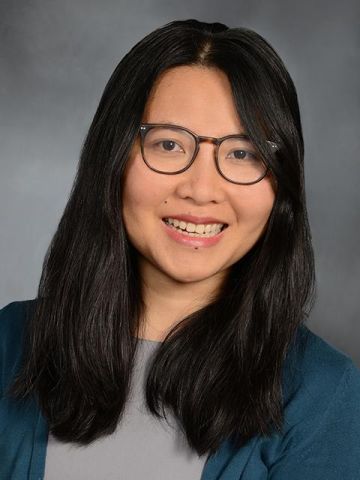
- Associate Professor of Immunology in Pediatrics
- Jane and Frederic Hamilton Clinical Scholar in Lipids, Pediatrics
My laboratory is focused on studying how dysregulated interactions between immune cells of the gut and gut microbiome at the maternal-fetal/neonatal interface contribute to the development of neonatal or pediatric inflammatory diseases. Specifically, ongoing studies in my laboratory involve in vitro cell biology assays, disease models in gnotobiotic mice and examination of clinical samples from newborns and children. We recently reported the presence of antigen-specific IgG antibodies that were induced by gut commensal bacteria under homeostatic conditions and a protective role for these pre-existing antibodies in conferring rapid protection against systemic pathogenic infections in mice, due to cross-reactivity to conserved IgG antigens expressed on pathogens. As a result, current efforts in the lab are centered on understanding the role of maternal gut microbiome-induced immune components in neonatal inflammatory complications, such as premature birth and necrotizing enterocolitis. An overarching goal for these studies is to develop strategies to use gut bacteria or bacterial components as candidates for maternal immunization to help facilitate appropriate immune responses in the fetus during pregnancy or in the newborn after birth. Another research effort is to identify gut bacteria in the newborn that induce aberrant gut inflammation, which is associated with development of food allergies, asthma or obesity in later life. Our diet or gut microbiome contributes significantly to the development of these kinds of inflammatory disorders commonly found in children from most developed countries. Understanding the underlying mechanisms will advance the development of therapeutics for these diseases.

- Assistant Professor of Immunology in Pediatrics
My lab’s long-term objective is to uncover novel mechanisms underlying the pathology of Crohn’s disease (CD), a progressive uncurable disease characterized by transmural intestinal inflammation leading to complications often requiring bowel resection surgery. The goal is to identify novel therapeutic targets by focusing on two previously disconnected hallmarks of CD: expanded mesenteric adipose tissue wrapping around the intestine – or creeping fat – and anti-microbial antibodies, both correlating with disease complications.
Studying these hallmarks will further reveal unexplored relationships between adipocytes, stromal cells and immune cells driving B cell responses in gut homeostasis and inflammation. Understanding these relationships will impact how we perceive immune responses at other mucosal sites and systemically. Ongoing projects include: the study of the impact of CD-specific microbiota on stromal cell-supported lymphoid structures embedded in mesenteric adipose tissue; specific mechanisms by which stromal cells and adipocytes communicate with B cells; and the subsequent impact on B cell activation and their differentiation to anti-microbial antibody-producing plasma cells. Future projects will investigate how these relationships are established in early life and evolve overtime.

- Assistant Professor of Pediatric Rheumatology
Dr. Robinson is a board certified pediatric rheumatologist at HSS specializing in the care and treatment of children with rheumatic diseases including childhood systemic lupus, juvenile idiopathic arthritis, juvenile dermatomyositis, localized and systemic sclerodermas, and vasculitides of childhood. Dr. Robinson also specializes in clinical and translational research at the Gale and Ira Drukier Institute for Children's Health at Weill Cornell Medicine. Her research is focused on identifying disease subsets within patients with childhood onset lupus for the purpose of developing effective targeted therapeutics.
After receiving her medical degree from the University of Connecticut School of Medicine, Dr. Robinson completed her residency in Pediatrics at the Icahn School of Medicine at Mount Sinai. She then completed her fellowship in Pediatric Rheumatology at Hospital for Special Surgery. During her fellowship, Dr. Robinson developed her clinical and translational research interests in childhood onset lupus under the mentorship of Dr Virginia Pascual and completed the Advanced Certificate in Clinical and Translational Investigation through the Clinical and Translational Research Center at Weill Cornell.
Affiliate Faculty

- Director of the Englander Institute for Precision Medicine
- Professor of Physiology and Biophysics
- Professor of Computational Genomics in Computational Biomedicine
The focus of my research group is on the systems biology of cancer; we focus on prostate cancer and hematological malignancies. In these cancers, we are elucidating the patterns of aberrant pathway activities, rewiring of regulatory networks and cancer mutations that have occurred in cancer cells. We are also trying to understand how tumors evolve at the genomic and epigenomic level. We use high-throughput sequencing (ChIP-seq, RNA-seq, bisulfite conversion followed by sequencing – specifically RRBS-, ATAC-seq, exome capture and sequencing, single cell RNAseq using DropSeq) to decipher epigenetic mechanisms and regulatory networks at play in malignant cells and study how they affect gene expression. My lab has developed several computational approaches for analysis of deep sequencing data, e.g. ChIPseeqer (for integrative analysis of ChIP-seq data) and SNVseeqer/INDELseeqer (full pipeline for mutation detection and characterization from deep sequencing data). My lab has developed several additional computational approaches that include a pathway analysis tool (iPAGE) several tools for regulatory element detection (FIRE and FastCompare) and RRBseeqer for ERRBS analysis (including detection of differentially methylated regions). We use drug repositioning to identify small molecules that can target mutated signaling pathways and classically undruggable proteins such as transcription factors. We model complex signaling pathways to identify drug combinations that can most efficiently shutdown aberrantly active pathways in cancer.
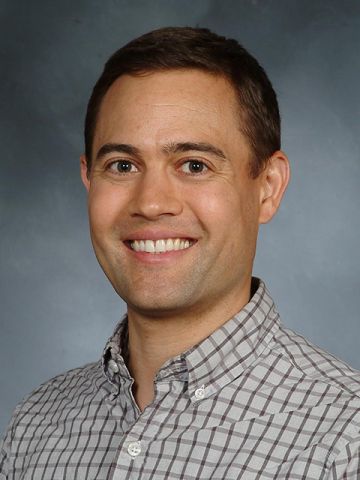
- Associate Professor of Pathology and Laboratory Medicine
Research Summary
(1) Functional Histone Genetic Experiments in a Mouse Model:
There exists a gap in our understanding of fundamental epigenetics in complex organisms. This is because most of what we know of histone function comes from elegant genetic experiments performed in model organisms that share a common ancestor with humans and mice more than 500 million years ago. In this work, we are developing tools to perform functional histone genetic experiments in mouse. The goal is to provide the capability to perform functional studies of histone genes and residues in vivo in a mammalian model system. Given our focus on the hematopoietic and immune systems, and their function, there is an exciting potential for this project to synergize with other work in the lab and for expanding these tools to study the role of histone residues in epigenetic features of immunity such as immunologic memory, immune cell exhaustion, “trained immunity” (see below), and more.
(2) Mechanisms and Function of Epigenetic Memory of Inflammation in Hematopoietic Stem Cells:
The term "trained immunity" indicates an organism's durable memory of inflammation that is independent of immunologic memory as mediated by adaptive immune cells. It has become clear that such memory can reside in the hematopoietic stem cell (HSC) compartment. The implications of such memory are remarkable and likely to feature in immunity, autoimmunity, and vaccine responses, but the mechanisms of transcriptional and epigenetic regulation of this "training" in HSCs are unknown. We explore these mechanisms and functional implications of “HSC training”, leveraging a specialized toolkit for working with HSC, functional histone genetic experiments, epigenomic assays (including HiC, small cell number ChIP). We are especially interested in investigating epigenetic “memory” of childhood inflammatory events and if these may contribute to pediatric inflammatory disease.
(3) “Signaling to Chromatin” Pathways in Immune Cell Development and Function:
We study how immune signaling events are transmitted to chromatin to selectively induce inflammatory genes in macrophages responding to inflammatory cues. These studies establish the cooperative role of epigenetic mechanisms (histone modifications) and transcription factor activity— both regulated by signaling kinases— highlighting the coordinated function of these factors. Our ongoing studies are revealing epigenetic mechanisms that have dedicated function in rapid stimulation-induced transcription, critical for immunity and coopted in cancer. Targeting such dedicated mechanisms that enable inflammatory gene (and oncogene) induction may provide more selective therapeutic strategies for diverse inflammatory diseases and cancer. A long term career goal is to apply mechanistic knowledge of epigenetic regulation of inflammation to better understand inflammatory disease, trained immunity, immune cell exhaustion, and other epigenetic immune phenomena.

- Caryl and Israel A. Englander Clinical Scholar in Children’s Health
- Assistant Professor of Clinical Pediatrics
Dr. Perdita Permaul is a clinical investigator, pediatric allergist/immunologist and an assistant professor of pediatrics at Weill Cornell Medicine. She completed her undergraduate degree at the University of Pennsylvania, her medical degree at the Icahn School of Medicine at Mount Sinai, and completed her pediatric residency at New York-Presbyterian/Weill Cornell Medical Center. She then moved to Boston and continued her training at Boston Children’s Hospital, where she completed a fellowship in Allergy and Immunology. During her three-year fellowship, she served as a research fellow in the Division of Pulmonary and Critical Care Medicine at Brigham and Women’s Hospital where she participated in the development and execution of asthma clinical trials of the Asthma Clinical Research Network (ACRN)/NHBLI. Upon completing fellowship, Dr. Permaul continued on as a pediatric allergist and immunologist at Massachusetts General Hospital and assistant professor of pediatrics at Harvard Medical School until her return to Weill Cornell.
Dr. Permaul has authored a number of scientific papers, reviews and book chapters on original research showing how indoor allergen exposures affect asthma outcomes in urban children with asthma, both in the school and home environments. Her current clinical/translational asthma research is supported by grant funding from the National Institutes of Health (NIH) to study the interactions between childhood obesity, the environment, and asthma morbidity in an established cohort of inner-city children with asthma. Obesity and asthma are two chronic childhood diseases that have shown a striking surge in prevalence over the past two decades. Obese children with asthma experience significantly greater symptoms, poor response to inhaled corticosteroid therapy, loss of asthma control, and higher asthma-associated health care utilization. The underlying pathophysiologic mechanisms for explaining why obesity leads to poorly controlled asthma is largely unknown. Ongoing work has focused on studying how obesity related systemic inflammation contributes to the development of severe asthma in children through profiling of cytokines and other inflammatory and immune mediators. Dr. Permaul is also a co-investigator of NIH funded multi-center pediatric asthma clinical trials focused on early interventions to prevent the development of asthma.

- Friedman Family Foundation Clinical Scholar in Newborn Medicine
- Assistant Professor of Pediatrics
Matthew Smith-Raska is a neonatologist who is studying the role of epigenetics in fetal and neonatal growth and development. Dr. Smith-Raska obtained his MD and PhD degrees from Columbia University, where he studied the stem cell-like properties of T lymphocytes. He then completed Pediatric Residency at UCLA, and Fellowship in Newborn Medicine at Boston Children’s Hospital, where he served as Chief Fellow. He came to Weill Cornell in 2018, where his research is focused on the role of epigenetic processes in fetal growth and neurodevelopment. Dr. Smith-Raska also cares for patients in the Neonatal Intensive Care Unit in the Weill Cornell Department of Pediatrics.

- Horace W. Goldsmith Foundation Professor of Pediatrics
Dr. Abdul-Rahman completed his medical school and pediatrics residency at the University of Mississippi School of Medicine. Subsequently, he trained in clinical genetics at Stanford University. Dr. Abdul-Rahman returned to Mississippi to begin his academic career and spent 12 years serving in various roles including division chief of medical genetics and interim chair of the department of pediatrics. He then moved to Omaha, Nebraska to serve as the director of the department of genetic medicine at the Munroe-Meyer Institute, part of the University of Nebraska Medical Center. Dr. Abdul-Rahman served in that role for over five years, developing a number of clinical programs and supporting the establishment of a newly accredited genetic counseling training program. As a person who enjoys developing new collaborations and building programs, he was drawn to the opportunity at Weill Cornell Medicine and NewYork-Presbyterian Hospital to expand the reach of genetics across the health system.
Dr. Abdul-Rahman sees a broad range of patients, including prenatal, pediatric, and adult patients with various genetic conditions. He has worked in clinics serving patients with craniofacial anomalies, differences of sexual development, and bone fragility disorders in addition to general genetics clinics seeing patients of all ages; Dr. Abdul-Rahman enjoys the diversity of patients and disorders in his practice. He is also very interested in evaluating children with possible fetal alcohol spectrum disorders (FASD) and has worked on a number of educational and research projects related to FASD both in the US and abroad collaborating with the NIAAA and the WHO.

- Assistant Professor of Clinical Pediatrics
Dr. Karen Acker is an Assistant Professor of Clinical Pediatrics at Weill Cornell Medicine and Assistant Attending at Phyllis and David Komansky Children's Hospital at NewYork-Presbyterian/Weill Cornell Medical Center. She received her B.S. in biology at Davidson College in Davidson, North Carolina, and then returned to her home state of New York for her medical training. She received her medical degree (M.D.) at SUNY Downstate Medical Center in Brooklyn, NY, and completed her residency in pediatrics at NewYork-Presbyterian Hospital/Weill Cornell Medical College, followed by her fellowship in pediatric infectious diseases at NewYork-Presbyterian Hospital/Columbia University Medical Center. During her fellowship, she developed clinical and research interests in Staphylococcal infections and infections in immunosuppressed patients.
Dr. Acker is board-certified in pediatrics and board-eligible for pediatric infectious diseases.

- Associate Professor of Pediatrics
Dr. Akchurin graduated from medical school in Vinnica Medical University in Ukraine. After practicing pediatrics in Ukraine for four years, Dr. Akchurin decided to continue his career in the United States. He did his Pediatric Residency in Women’s and Children’s Hospital of Buffalo/State University of New York at Buffalo and his Pediatric Nephrology Fellowship at the Children’s Hospital of Montefiore / Albert Einstein College of Medicine.His clinical expertise includes chronic kidney disease, especially in young children and infants, including issues related to growth and nutrition of this category of patients. Dr. Akchurin’s research is related to growth, nutrition, and inflammatory and metabolic changes in children with chronic kidney disease, as well as quality assurance efforts aimed to improve medication adherence.

- Associate Professor of Clinical Pediatrics
Dr. Zoltan Antal is the Chief of Pediatric Endocrinology at Weill Cornell Medicine and directs the Pediatric Diabetes Program in the Division of Pediatric Endocrinology. He is an Assistant Professor of Pediatrics at Weill Cornell Medicine and an Assistant Attending Pediatrician at NewYork-Presbyterian Phyllis and David Komansky Center for Children's Health at Weill Cornell Medical Center. Dr. Antal is board certified in Pediatrics and Pediatric Endocrinology. Dr. Antal received a B.S. in Biology from Stony Brook University in Stony Brook, New York and completed his medical degree (M.D.) from St. George’s University School of Medicine in Grenada, West Indies in combination with clinical rotations at Jamaica Hospital in Queens, New York City. He went on to complete his Residency in Pediatrics in Brooklyn, New York at SUNY Downstate Medical Center and Kings County Hospital, where he later served as chief resident. After residency, he remained in New York City and completed a fellowship in Pediatric Endocrinology at the Children’s Hospital at Montefiore in the Bronx. During his fellowship, Dr. Antal also conducted research at the Albert Einstein College of Medicine in the immunology of diabetes. Specifically, he isolated islet cells from pancreata of diabetic mice and studied the targets of the islet infiltrating T cells. In addition, he was also in charge of the translational component of the research, which entailed examining the peripheral blood of children newly diagnosed with type 1 diabetes, searching for reactivity to the human counterparts of the murine T cell targets. Finally, Dr. Antal and his colleagues analyzed the HLA supertypes of a subset of diabetic children, publishing the findings in the Annals of the New York Academy of Sciences in 2008.

- Michael Kors Professor in Immunology
- Professor of Immunology in Medicine
- Professor of Microbiology and Immunology

- Levy Family Professor Investigator
- Howard Hughes Medical Institute Senior Attending Physician
Casanova studies the human genetic and immunological determinants of life-threatening infectious diseases. He searches for rare and common single-gene mutations that selectively compromise immunity of otherwise healthy individuals who are vulnerable to specific infectious diseases. He then searches for other causes disrupting the same mechanisms of host defense, and thus characterizes the causal mechanisms of life-threatening infectious diseases.
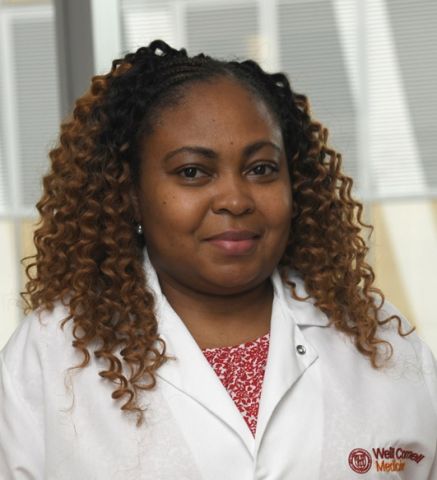
- Professor of Pediatrics
Genevieve Fouda is a Professor of Pediatrics at Weill Cornell Medicine. She also serves as the Assistant Dean for Faculty Development, and Director of the Ph.D. Scientist Development and Training in Pediatrics. She received her M.D. from the Faculty of Medicine and Biomedical Sciences of Yaoundé I in Cameroon and her Ph.D. from Georgetown University. She went on to complete her postdoctoral training at Duke University. Before moving to Weill Cornell Medicine, she was an Associate Professor in Pediatrics with tenure and an Associate Professor in Molecular Genetics and Microbiology at Duke University.
Her research program focuses on early life immunity and on understanding differences in antibody responses to viral pathogens in children and adult following natural infection and vaccination. She believes that a better understanding of these differences will guide the design of optimal immune-based interventions targeting pediatric populations. Some of her current projects include investigating the development of broadly neutralizing antibodies in children living with HIV-1, and comparing SARS CoV-2 antibody responses following infection and vaccination between adults and children.

- Professor of Clinical Pediatrics
Dr. Greenwald is Chief of the Division of Pediatric Critical Care Medicine, Executive Vice-Chair for Operations for the Department of Pediatrics, and Professor of Clinical Pediatrics at Weill Cornell Medicine. He oversees the NewYork-Presbyterian Hospital/Weill Cornell Medical Center's Pediatric Critical Care Center, a 23-bed multidisciplinary intensive care unit providing state-of-the art care for the most seriously ill and injured infants, children, and adolescents. The unit specializes in the care of children (up to 21 years of age) with challenging forms of respiratory failure due to severe pneumonia, asthma or viral illnesses, circulatory shock due to overwhelming infection or cardiac failure, and provides post-surgical care for children following cardiac and neurological surgery. Dr. Greenwald received his medical degree (M.D.) at New York University School of Medicine. He completed his residency at New York University Medical Center & Bellevue Hospital, where he also served as chief resident, and then completed a fellowship in Pediatric Critical Care Medicine at New York Hospital, Cornell University Medical College (now NewYork-Presbyterian Hospital, Weill Cornell Medicine). In addition to his clinical, teaching, and research activities at Weill Cornell Medicine, Dr. Greenwald has contributed to the national development of critical care medicine as a vital pediatric sub-speciality. He co-Chaired the Society of Critical Care Medicine's Program Committee for the 2010 International Critical Care Congress. He is one of the founding members of the New York Society of Pediatric Critical Care Medicine, serving as the Society's President from 1993 to 1995. He is a Fellow of the American College of Critical Care Medicine and served the College as a member of its Board of Regents from 2011 to 2019, and as its Chancellor from 2107 to 2018.

- Assistant Professor of Clinical Pediatrics
As a pediatric pulmonologist, my research focuses on basic science. I have participated in basic science and clinical research since the beginning of my career. I have worked diligently to develop and refine my skills to become an excellent clinician and teacher in the pediatric pulmonology field. During my initial years, I had the great opportunity to work with researchers, with extraordinary and meaningful careers in an area of high relevance for pediatric respiratory diseases. This work has exponentially expanded my research knowledge in asthma, bronchopulmonary dysplasia, and sphingolipids. As PI and co-investigator on different projects, I laid the groundwork for the proposed research by mastering the Flexivent, which is the gold standard for in vivo lung function measurements for animals. This specific technology not only provided new mechanistic insights into the respiratory system but provided me with unique bench skills. In addition, I successfully conducted translational and clinical projects on childhood asthma and sphingolipids, collaborated with other researchers, and produced publications from each project. I have also served as a mentor in a T32 program, both laboratory and clinical research. I have the motivation and commitment to collaborative research to further the development of novel therapeutic strategies for childhood diseases.
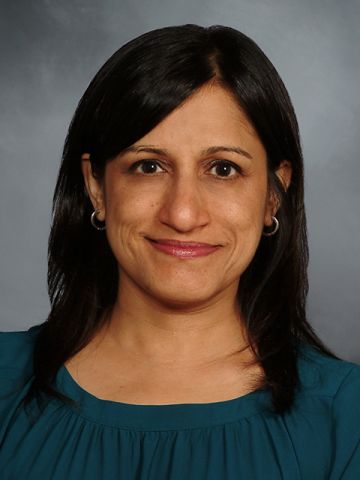
- Associate Professor of Clinical Pediatrics
Dr. Shipra Kaicker is an Associate Professor of Clinical Pediatrics at Weill Cornell Medicine and Associate Attending Pediatrician at NewYork-Presbyterian Hospital. Her clinical areas of interest are pediatric hematology, platelet disorders, immune cytopenias, anemias, sickle cell disease and bone marrow failure syndromes. She is board certified in Pediatrics and Pediatric Hematology-Oncology. Dr. Kaicker received her M.B.B.S. degree at Lady Hardinge Medical College at the University of Delhi, New Delhi, India. She completed her M.D. and Pediatric Residency at Maulana Azad Medical College, also at the University of New Delhi, where she also served as Senior Registrar (Chief Resident) in Pediatrics. Dr. Kaicker expanded her training in New York City, where she completed a Post-Doctoral Clinical Fellowship and Post-Doctoral Research Fellowship, both in Pediatric Hematology-Oncology, at Columbia University Medical Center, and an additional Pediatric Residency at Saint Vincent's Medical Center. Dr. Kaicker is a clinical researcher and is participating in clinical trials for childhood immune thrombocytopenia as part of ICON ( ITP Consortium of North America) and collaborating with basic science researchers to identify biomarkers in childhood ITP

- Wallace-Starr Foundation Professor of Pediatrics
- Chief of the Division of Cardiology
- Director of the Pediatric Heart Regeneration Institute

- Professor Emeritus of Pediatrics
Gerald M. Loughlin, M.D., M.S. is Professor of Pediatrics in the Department of Pediatrics at Weill Cornell Medicine, and Attending Pediatrician at NewYork-Presbyterian/Weill Cornell Medical Center and Phyllis and David Komansky Children's Hospital.
Dr. Loughlin received his M.D. from the University of Rochester and a Master’s of Science (M.S.) in Business Health Care Finance and Administration from Johns Hopkins University. He has served on the Board of Directors of several major healthcare organizations, including the Board of the American Thoracic Society and the Mount Washington Pediatric Hospital in Baltimore.
Dr. Loughlin served as Chair and Pediatrician-in-Chief at Weill Cornell Medicine and NewYork-Presbyterian/Weill Cornell Medical Center and NYP Phyllis and David Komansky Children's hospital from 2002-2020. He is an internationally recognized authority on pediatric respiratory diseases, including asthma, cystic fibrosis, and sleep apnea. He is board certified in pediatrics and pediatric pulmonology. The recipient of many awards and honors, Dr. Loughlin is ranked as one of New York Magazine’s “Best Doctors” and Castle Connolly’s “America’s Top Doctors.” He has authored numerous publications, and is co-editor of two textbooks focused on diagnosis and management of respiratory diseases in children, and pediatric sleep and breathing disorders.
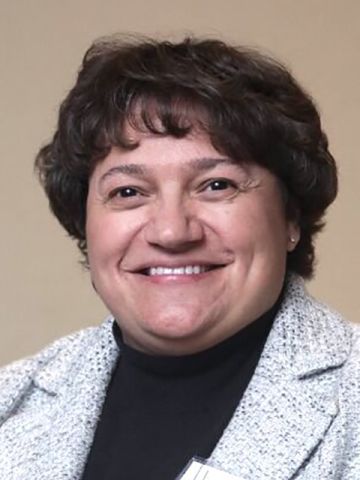
- Endowed Professor of Neonatology
- Professor of Pediatrics
Camilia (Cami) R. Martin M.D., M.S. is the Division Chief of Neonatology at Weill Cornell Medicine. She received her M.D. from Weill Cornell Medical College and completed her internship and residency at Lurie/Children’s Memorial Hospital-Northwestern School of Medicine where she also served as Chief Pediatric Resident. Dr. Martin completed her fellowship in Perinatal-NeonatalMedicine at the Harvard Combined Program in Neonatology. During her fellowship training, she completed a Masters in Epidemiology at Harvard School of Public Health.
Dr. Martin’s research program spans basic to clinical translational research to study neonatal nutrition and its impact on health and disease in the preterm infant establishing, through these efforts, the Infant Health Research Program at BIDMC. Her research program is supported by broad based funding from the NIH, foundation, industry, philanthropy, and state-level programs. She participates in multi-site cohort studies and clinical trials serving as the Principal Investigator evaluating nutrition, growth, and long-term neurodevelopmental outcomes in the extremely preterm infant. Dr. Martin's current research focus is on lipids and fatty acid metabolism, postnatal intestinal adaptation including the microbiome, and the nutritional impact on organogenesis, development of immune defenses, and regulation of the inflammation.

- Assistant Professor of Immunology Research in Pediatrics
Dr. Ashley Nelson is an Assistant Professor of Immunology at Weill Cornell Medicine in the Department of Pediatrics. Her research program focuses on how the immune system develops and responds in early life, particularly in the context of vaccination and viral infections. She has recently been awarded a KL2 grant through WCM Clinical and Translational Science Center to understand molecular pathways involved in the development of HIV neutralization breadth in infants. Her research program also focuses on understanding antibody responses to respiratory viral infections, the interplay between co-infections and host immunity, as well as the contribution of immune regulatory cells in disease progression and severity.
Dr. Nelson earned her Bachelor of Science in Forensic Biology at Virginia Commonwealth University. She decided to pursue a career in research, so went on to earn a Master of Science in Molecular Biology from Towson University. Subsequently, she earned a PhD in Molecular Microbiology and Immunology from the Johns Hopkins University Bloomberg School of Public Health studying the immune response to measles infection and vaccination. Her PhD work contributed to our understanding on the mechanisms leading to long-term immunity following measles vaccination. She was recently promoted to junior faculty at Weill Cornell Medicine, following her postdoctoral training career at Duke University in the Human Vaccine Institute.

- Professor of Clinical Pediatrics
An expert in pediatric rheumatology, Karen Onel, MD, cares for children and teens with arthritis and other autoimmune disorders. In particular, she diagnoses and treats: lupus, juvenile arthritis, vasculitis, uveitis (an inflammatory disorder of the eye), chronic non-infectious osteomyelitis, dermatomyositis and the periodic fever syndromes. Her goal is to work with the patient and his/her family to create a long-term care plan that will lead to improved quality of life.
Dr. Onel's research focuses on gaining a greater understanding of the causes of rheumatic illnesses, as well as evaluating the safety and tolerability of new treatments. She is collaborating with other institutions to define evidence-based best treatment practices for children with JIA, SLE and recurrent non-infectious osteomyelitis.
Dr. Onel has authored numerous papers, reviews and book chapters on pediatric rheumatology. In addition, she serves as a reviewer for many scientific journals, is on the editorial board of Pediatric Rheumatology and is Associate Editor for Seminars in Arthritis and Rheumatism.

- Associate Professor of Clinical Pediatrics
Dr. Jennie Ono is the Chair of the Department of Pediatrics at NewYork-Presbyterian-Queens. She previously served as the Medical Director for Inpatient Pediatrics at Weill Cornell Medicine and the Komansky Children’s Hospital at NewYork-Presbyterian Hospital/Weill Cornell Medical Center. Dr. Ono is an associate professor of clinical pediatrics at Weill Cornell Medicine and associate attending physician at NewYork-Presbyterian Hospital. She is board-certified in Pediatrics.
Dr. Ono received her B.A. from Vassar College. She then attended the State University of New York, University at Buffalo where she received her medical degree (M.D.) at the School of Medicine and Biomedical Sciences. She came to NewYork-Presbyterian Hospital/Weill Cornell Medical Center for her residency training, which she completed in 2009. After residency, Dr. Ono remained at NewYork-Presbyterian/Weill Cornell to serve as Chief Resident, and joined the faculty in 2010. In 2016, she completed her M.S. at the Weill Graduate School of Medical Sciences of Cornell University.
She is also involved in education and research, with a focus on understanding biological mechanisms of asthma in children.
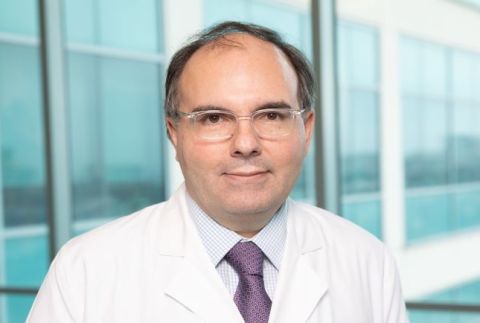
- Abe M. Chutorian, MD Professor of Pediatric Neurology and Chief of the Division of Pediatric Neurology
- Professor of Neuroscience
- Professor of Pediatrics
Dr. Juan M. Pascual is the inaugural Abe Chutorian MD Professor and Chief of the Division of Child Neurology. Dr. Pascual cares for children, adults and families with unusual or particularly difficult to conceptualize diseases and who have often received several professional opinions. In the process, he aims to share the strenghts of Weill Cornell Medicine and NewYork-Presbyterian Hospital with the patients of New York, the nation and the world.
He devotes significant effort to the training of physicians and scientists who, one day, will replace incomplete knowledge with their own conceptions and discoveries.
Dr. Pascual is also a laboratory scientist studying the nervous system using a broad variety of methods. His philosophical interests are not only related to science and include language, atomism and causation.
Prior to joining Weill Cornell and NewYork-Presbyterian, Dr. Pascual was the inaugural holder of The Once Upon a Time Foundation Professorship in Pediatric Neurologic Diseases and the holder of the Ed and Sue Rose Distinguished Professorship in Neurology at The University of Texas Southwestern Medical Center, where he remains an adjunct professor of Neurology. He is also adjunct professor of Bioengineering at the Erik Jonsson School of Engineering and Computer Science at The University of Texas at Dallas.
Dr. Pascual received his MD degree with distinction from the Universidad de Granada, Spain, one of the oldest universities in the world, founded in 1349. He received his PhD degree in Molecular Physiology and Biophysics from Baylor College of Medicine in Houston, Texas, under Arthur M. Brown, MD, PhD (1932 - 2021), McCollum Professor and Chair. His postdoctoral research was conducted in the laboratory of Arthur Karlin, PhD (1936 - 2024), Higgins Professor and Director of the Center for Molecular Recognition, College of Physicians and Surgeons of Columbia University and, later, at the Colleen Giblin Research Laboratories for Pediatric Neurology at the same institution under a Neurological Sciences Academic Development Award from the National Institute of Neurological Disorders and Stroke (NINDS). He also received residency training in Pediatrics at Washington University School of Medicine - St. Louis Children’s Hospital and in Neurology and Pediatric Neurology at the Neurological Institute of New York - Columbia University Medical Center.
His laboratory research, mostly funded by NINDS, spans virtually the entire field of neuroscience, including medical neuroscience, from molecular structure and function (including drug action) to neural physiology and metabolism at the cellular, circuit and whole-brain level and neurogenetics, all of which is complemented with human studies and clinical trials. Research greatly influences his clinical activities and patient observations guide his research. His laboratory is home to scientists from very diverse backgrounds and levels of training who have joined efforts to endow both neurology and developmental medicine with a strong scientific basis.
Dr. Pascual has co-authored several dozen scientific and medical textbooks. He is the editor, together with Dr. Roger Rosenberg, of the leading text Rosenberg's Molecular and Genetic Basis of Neurological and Psychiatric Disease (from the 2015 5th edition to the present one, which comprises over 2,000 pages). He is also the author of the textbook Progressive Brain Disorders in Childhood (Cambridge University Press). He is now working on a new philosophy book, provisionally entitled Sense & Nonsense in Medical Neuroscience: Inference & Fallacy, to be published also by Cambridge University Press.
As a clinician, Dr. Pascual specializes in genetic and metabolic diseases of the nervous and neuromuscular systems of infants, children and adults with emphasis on complex diagnostic problems, second opinions for patients visiting from the rest of the nation and abroad, and clinical trials.
Following study with Dr. Peter Hacker, he also joined the department of philosophy at Cornell University as affiliate faculty member.

- Professor of Pediatrics
Dr. Perlman is a Professor of Pediatrics at Weill Cornell Medicine and Chief of Newborn Medicine at NewYork-Presbyterian/Weill Cornell Medical Center. He also directs the Neonatal Intensive Care Unit (NICU). He received his medical degree from the University of Cape Town (1974) and completed his pediatric residency and fellowship training at St. Louis Children's Hospital, affiliated with Washington University. He undertook further training in the study of cerebral blood flow and metabolism at Washington University.
After completing his training, Dr. Perlman served as medical director for the neonatal intensive care unit (NICU) at St. Louis Children's Hospital for six years. Previous to his arrival at Weill Cornell in 2004, Dr. Perlman was the medical director of the NICU at Parkland Memorial Hospital affiliated with the University of Texas, Southwestern in Dallas
His research interests include understanding the mechanisms of brain injury and potential treatment strategies in the preterm and term infant including intraventricular hemorrhage and hypoxic ischemic brain injury, optimizing the management of the depressed newly born infant in the delivery room and reducing neonatal mortality morbidity in the low resource setting. A world-renowned expert in neonatal medicine, Dr. Perlman lectures frequently both nationally and internationally, and is the author of over 175 peer reviewed papers, numerous book chapters. Currently he is the science advisor to the Neonatal Resuscitation Program (NRP), and was the immediate Co-chair of Neonatal section of the International Liaison Committee on Resuscitation (ILCOR).

- Chair of Pediatrics
- Nancy C. Paduano Professor in Pediatrics
Sallie Permar, M.D., Ph.D is an eminent physician-scientist who focuses on the treatment and prevention of neonatal viral infections. She serves as Chair of the Department of Pediatrics at Weill Cornell Medicine and Pediatrician-in-Chief at NewYork-Presbyterian/Weill Cornell Medical Center and NewYork-Presbyterian Komansky Children’s Hospital. She is also the Nancy C. Paduano Professor in Pediatrics at Weill Cornell Medicine and Professor of Immunology and Microbial Pathogenesis at the Weill Cornell Graduate School.
As a physician-scientist focusing on the prevention and treatment of neonatal viral infections, Dr. Permar leads a research laboratory investigating immune protection against vertical transmission of neonatal viral pathogens, namely HIV and cytomegalovirus (CMV). She has made important contributions to the development of vaccines for prevention of vertical HIV transmission, defining both innate and adaptive immune responses that are associated with protection against infant HIV acquisition. Moreover, Dr. Permar is leading the development of HIV vaccine strategies in preclinical maternal/infant nonhuman primate models and translation of this work for clinical vaccine trials in infants. Dr. Permar has also defined determinants of congenital and perinatal CMV transmission, developing the first nonhuman primate model of congenital CMV infection and leading human cohort studies that have defined immune correlates of protection necessary to guide vaccine development.
She has received several prestigious investigator awards, including the Presidential Early Career Award in Science and Engineering (PECASE), the E. Mead Johnson Award from the Society of Pediatric Research, and was inducted into the American Society of Clinical Investigation (ASCI) and is a Fellow of the American Academy of Microbiology (AAM) and the American Association of Advancement of Science. In 2020, she received the Oswald Avery Award for Early Achievement from the Infectious Diseases Society of America and the Gale and Ira Drukier Prize in Children’s Health Research, and in 2022, Dr. Permar received the Excellence in Science Mid-Career Investigator Award from the Federation of Societies for Experimental Biology (FASEB). Dr. Permar also serves on the board of the National CMV Foundation, advocating for more awareness and research funding to eliminate this common congenital infection. She is an institutional and national leader in physician-scientist training, serving as the Director of the nearly four decades-old National Institute of Child Health and Development (NICHD) Pediatric Scientist Development Program sponsored by the Association of Medical School Department Chairs of Pediatrics (AMSPDC).
In addition, Dr. Permar serves as the Vice Chair of the Operations Committee and Chair of a Health Equity Task Force in the Weill Cornell Medicine Physician Organization, aiming to bring these principles of health equity to all patients served by the institution.
Dr. Permar has a Ph.D. in Microbiology/Immunology from Johns Hopkins Bloomberg School of Public Health in Baltimore, an M.D. from Harvard Medical School, and completed her clinical training in pediatric infectious diseases at Children’s Hospital in Boston. She has received several prestigious investigator awards, including the Presidential Early Career Award in Science and Engineering (PECASE), the E. Mead Johnson Award from the Society of Pediatric Research, and was inducted into the American Society of Clinical Investigation (ASCI) and is a Fellow of the American Academy of Microbiology (AAM) and the American Association of Advancement of Science. In 2020, she received the Oswald Avery Award for Early Achievement from the Infectious Diseases Society of America. Dr. Permar also serves on the board of the National CMV Foundation. She is an institutional and national leader in physician-scientist training, serving as the Director of the National Institute of Child Health and Development (NICHD) Pediatric Scientist Development Program.

- Professor of Pediatrics in Medicine, Medicine
- Professor of Pathology and Laboratory Medicine, Pathology and Laboratory Medicine
- Professor of Pediatrics, Pediatrics
Dr. Roth is the Director of Pediatric Oncology and a Professor in the Departments of Pediatrics, Medicine and Pathology and Laboratory Medicine at Weill Cornell Medicine, where she served as the Charles, Lillian and Betty Neuwirth Clinical Scholar in Pediatric Oncology from 2013-2019. She is also an Associate Attending Pediatrician at NewYork-Presbyterian Hospital/Weill Cornell Medical Center.
Dr. Roth completed her undergraduate work at Duke University. She received her medical degree from New York University School of Medicine. Dr. Roth conducted her residency at NewYork-Presbyterian/Weill Cornell and her fellowship in pediatric hematology/oncology at Memorial Sloan-Kettering Cancer Center and NewYork-Presbyterian where she served as chief fellow.
Dr. Roth specializes in treating children, adolescents and young adults with lymphoma and leukemia. She is a member of the Children’s Oncology Group and an active participant in Hodgkin lymphoma and non-Hodgkin lymphoma clinical trials. She is also a member of the Weill Cornell Center for Lymphoma, a group which is internationally recognized for it’s leadership in the treatment of patients with lymphoma.
Dr. Roth’s research focuses on identifying new treatments for children with lymphoma. She is particularly interested identifying novel targeted therapies. Targeted therapies may be less toxic than conventional chemotherapy and may be able to rescue those patients with chemotherapy-resistant disease. Dr. Roth has been recognized for her work with awards from the National Institutes of Health (NIH), the Lymphoma Research Foundation, Hyundai Hope on Wheels Foundation, and the St. Baldrick's Foundation.

- Harold Weill Professor of Pediatric Hematology in Pediatrics
- Professor of Clinical Pediatrics, Pediatrics
Dr. Sujit Sheth is the Chief of the Division of Pediatric Hematology/Oncology and Professor of Clinical Pediatrics at Weill Cornell Medicine and an Attending Pediatrician at NewYork-Presbyterian Phyllis and David Komansky Children's Hospital and Weill Cornell Medical Center. He is also Vice Chair of Clinical Research in the Department of Pediatrics at Weill Cornell Medicine. Dr. Sheth is board-certified in pediatrics and pediatric hematology/oncology, and is an expert in iron metabolism, thalassemia, and sickle cell disease.
Dr. Sheth completed his medical training at the University of Bombay, receiving his medical degree (MBBS) in 1988 and completing his resident specialty training in Pediatrics (MD) in 1991. A year later, he entered Columbia University, College of Physicians & Surgeons as a Post-Doctoral Fellow in Pediatric Hematology/Oncology, completing his fellowship in 1995 and his obligatory additional year of residency in Pediatrics in 1996. Following his residency, Dr. Sheth joined the Columbia University faculty where he was appointed Assistant Professor of Pediatrics. In 2004, he assumed responsibility as Clinical Director of the Pediatric Hematology program, and was promoted to Associate Clinical Professor of Pediatrics.
In addition to his clinical work, Dr. Sheth is recognized for his dedication to medical education. At NewYork-Presbyterian Morgan Stanley Children's Hospital, he was voted Attending of the Year by the Pediatric Housestaff in 2010 and nominated for Teacher of the Year eight times, receiving the honor in 1999. He has served on resident selection and education committees, as well as on the Scientific Advisory Board, Irving Center for Clinical Research at NewYork-Presbyterian Hospital.
Assuming responsibility as Chief of the Division of Pediatric Hematology and Oncology, Dr. Sheth moved to Weill Cornell in 2011, and was appointed Professor of Clinical Pediatrics in 2012. Since then he has overseen a reorganization and renovation of the Division, practice and clinical facility, adding additional faculty both on the clinical and research arms.
Dr. Sheth has also established himself as a physician-scientist with a focus on clinical research related to disorders of iron overload. He has completed work as Principal Investigator on one NIH grant, "Mentored Patient-Oriented Hematology Research Training," and as co-investigator on several other NIH funded studies. He is currently working on research projects and clinical trials related to disorders of red blood cells and iron metabolism. He was appointed Vice-Chair for Clinical Research in 2014, and has worked on improving infrastructure, internal funding and overall support for clinical research in the Department.

- Professor of Clinical Pediatrics
Dr. Robbyn Sockolow is Vice Chair for Ambulatory Care Services - Access and Strategy, Chief of the Division of Pediatric Gastroenterology, Hepatology and Nutrition, and Professor of Clinical Pediatrics at Weill Cornell Medicine, and Attending Pediatrician at NewYork-Presbyterian Phyllis and David Komansky Children's Hospital at Weill Cornell Medical Center. She is board certified in pediatrics and pediatric gastroenterology and is also a certified Physician Nutrition Specialist. She has been selected for New York Magazine's Top Doctors, Castle Connelly's America's Top Doctors, and as a New York "Super Doctor."
A pioneer in making capsule endoscopy more user-friendly for children with her "jellybean test," Dr. Sockolow's clinical interests include inflammatory bowel disease (IBD) (Crohn's and ulcerative colitis), celiac disease, capsule endoscopy, gastroesophageal reflux disease, and GI disease related to Autism Spectrum Disorders. After receiving two B.A.s at Emory College in Atlanta, Georgia, Dr. Sockolow completed her medical degree (M.D.) at New York Medical College. She continued her medical training at Montefiore Medical Center in New York City, where she completed her residency in Pediatrics. She followed this with the completion of two fellowships in pediatric gastroenterology at Mount Sinai Hospital (New York City) and Montefiore.

- Chief of Pediatric Nephrology
Dr. Natalie Uy is the Chief of Pediatric Nephrology at Weill Cornell Medicine. She is an Assistant Professor of Pediatrics at Weill Cornell Medicine and an Assistant Attending Pediatrician at NewYork-Presbyterian Komansky Children's Hospital at Weill Cornell Medical Center. Dr. Uy is board certified in Pediatrics and Pediatric Nephrology. Dr. Uy completed her undergraduate degree at Columbia University in New York, NY, and received her medical degree (M.D.) from Rutgers – New Jersey Medical School. She completed her residency in Pediatrics at Yale-New Haven Hospital. After residency, she returned to New York City and completed her fellowship in Pediatric Nephrology at the Children’s Hospital at Montefiore / Albert Einstein College of Medicine in the Bronx. Prior to joining Weill Cornell Medicne, Dr. Uy began her academic career at Columbia University Irving Medical Center, where she served as the director of the Pediatric Nephrology Fellowship Program. Dr. Uy’s research focuses on genetic causes of pediatric glomerular disease.
Research Faculty

- Assistant Professor of Immunology Research
Dr. Matei obtained her Doctorate from the University of Toronto, Canada and went on to complete a postdoctoral fellowship in the laboratory of Dr. David Lyden at Weill Cornell Medicine in New York City, She then joined the faculty at Weill Cornell Medicine as an Assistant Professor of Immunology Research in 2018, where she continues to study cancer metastasis and intercellular communication between systems and organs at homeostasis and during disease progression, with a particular focus on the adaptive immune system.



